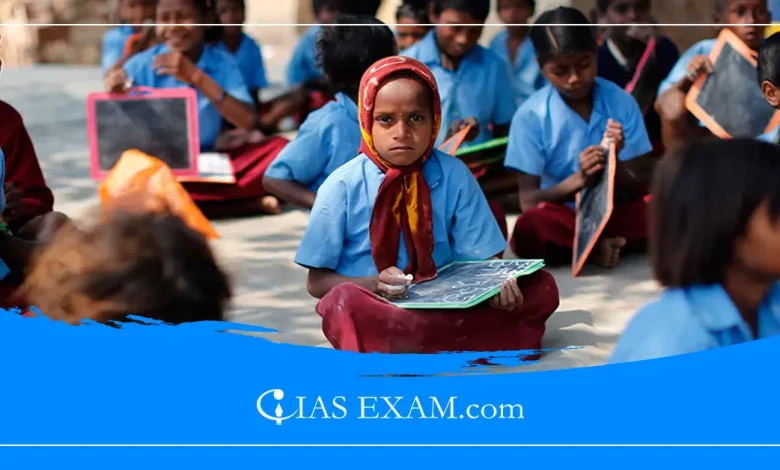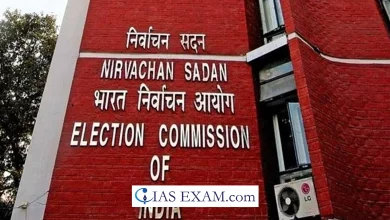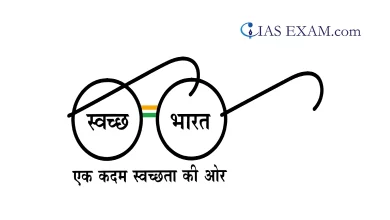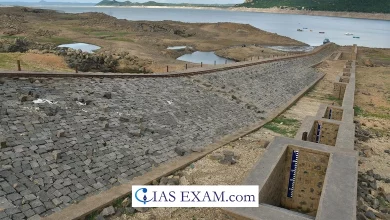Need for Overhauling Early Childhood Education in India
GS Paper 2 - Education, Govt. Policies and Interventions

Context
For many years, there has been a lack of research and investment in Early Childhood Care and Education (ECCE) in India, despite this seeming self-evident that children in India should get financial support given its emphasis on employment, education and demographic dividend.
ECCE is mostly restricted to the household domains, possibly because it is historically associated with women. The Government’s growing emphasis on women-driven development has led to a recognition of care work and early childhood education as essential components of nation-building.
Existing Status of ECCE
- Free and Compulsory Education: The Directive Principles of State Policy (DPSP) Article 45 of the Constitution states, “The state shall endeavor to provide for free and compulsory education for all children until they complete the age of fourteen years within a period of ten years from the commencement of this Constitution.”
- Improvements in GER (Gross Enrolment Ratio): The basic case for more funding for early childhood education and care is that people are a country’s most valuable resource, and early childhood development is the foundation of every human being. The Indian progressive state has gradually but steadily supported and nurtured parents’ dreams of education, aiming for first access and surpassing 100% GER at the elementary level.
- Problems with Learning Outcomes: Measuring learning outcomes has received more attention recently. The data from the National Sample Survey Office (NSSO) 75th Round, the NCERT (National Achievement Survey, 2023) learning outcomes study, and the ASER Report 2023 demonstrate that children in India are not learning at the primary stage and are having difficulty keeping up with the curriculum as they advance to higher levels.
- Improved Attention for Kids Under Six: With a focus on children under six, the government has made great progress in addressing this early in life. This has resulted in programs like the National Initiative for Proficiency in Reading with Understanding and Numeracy (NIPUN), the Bharat Mission for Foundational Literacy and Numeracy, and the initiative – Poshan Bhi Padhai Bhi to improve ECCE quality through the Anganwadi system.
Key Areas for Overhauling ECE in India
- Infrastructure Development: Enhancing infrastructure facilities is a fundamental prerequisite for improving early childhood education in India. This includes the construction of child-friendly preschools equipped with age-appropriate learning materials, safe play areas, and hygienic facilities.
- Teacher Training and Capacity Building: Investing in the professional development of early childhood educators is paramount. Training programs should focus not only on pedagogical techniques but also on fostering empathy, cultural sensitivity, and understanding of child development principles.
- Curriculum Reform: The current early childhood curriculum in India often lacks relevance and fails to cater to the diverse needs of children. There is a need for a holistic approach that integrates play-based learning, language development, numeracy skills, and social-emotional learning into the curriculum framework.
- Parental Engagement and Community Involvement: Recognizing the crucial role of parents and communities in supporting children’s early development, efforts should be made to foster strong partnerships between schools, parents, and local stakeholders.
Challenges to ECCE in India
- Affordability – Recent studies show that sending a child to a private school in India for their whole education—from age three to age seventeen—could cost an astounding Rs 30 lakh. In India, the expense of early childcare can sometimes account for 20–30% of total costs. Investments in ECCE are hampered by the financial weight of these costs.
- Accessibility – Traditional early learning formats such as preschools and daycare are not always accessible to all families due to factors like geographical location or traditional child-rearing practices. Moreover, India needs more skilled early-learning educators and essential infrastructure.
- Availability – Even though the Indian government has increased its funding for early childhood education (ECCE), notably by building digital laboratories and infrastructure, the problems still exist. The nation’s ECCE is characterized by fragmentation, regulatory loopholes, and the need for focused activities, which highlight areas that should be improved.
- Low Parental Engagement – Getting active in their children’s education can be difficult for parents for a variety of reasons, including job schedules that don’t allow for much time off, transportation issues, low literacy, and not understanding where or how to get information on early childhood education programs.
- Low Public Spending – India is a signatory to the Incheon Declaration, which calls on member nations to devote 4-6% of their GDP to education in order to meet SDG-4, or quality education. However, compared to the worldwide average of 4.7%, the Union Budget 2024 budget only allots only 2.9% of the GDP to education.
Suggestions for Reforming ECCE
-
- Overhauling early childhood education in India requires a comprehensive policy framework that addresses the multifaceted challenges facing the sector.
- Policy interventions should prioritize equitable access to high-quality ECE programs, with a focus on reaching marginalized and underserved communities.
- Moreover, policy initiatives should emphasize the integration of early childhood education into the broader education ecosystem, ensuring continuity and coherence across different stages of learning.
- This includes strengthening linkages between preschools, primary schools, and other early childhood services to facilitate smooth transitions for children.
- Overhauling early childhood education in India requires a comprehensive policy framework that addresses the multifaceted challenges facing the sector.
Conclusion
For years, ECCE investment has been disregarded, despite being vital to India’s future. The government has begun to concentrate on ECCE as it is seen as essential to human development; this is seen in programs like NIPUN Bharat and Poshan Bhi Padhai Bhi. The current budgetary allocation for early childhood education (ECCE) demonstrates a favorable trend, but given the benefits—such as increased cognitive capabilities and educational attainment—more is required.
The need for overhauling early childhood education in India is not merely a matter of educational reform but a moral imperative to secure the future of the nation’s children. By prioritizing investments in ECE infrastructure, teacher training, curriculum reform, and community engagement, India can unlock the full potential of its young population and lay the foundation for a more equitable and inclusive society.
SOURCE: The Hindu





.png)



